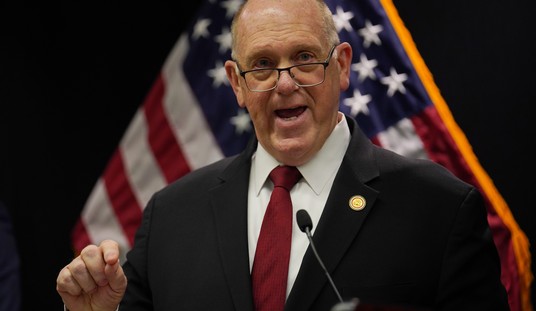Tuesday 150 academics and authors signed a letter against cancel culture which was published by Harper’s Magazine. Before the day was even out there was a furious backlash online and lots of drama, especially at Vox. The following day Ed wrote about some of the signatories who had chosen to walk back their endorsements of the statements made in the letter. One of those was historian Kerri K. Greenidge who asked that Harper’s remove her name from it. Harper’s said they would do so even as Greenidge’s sisters publicly claimed her name had been added without her knowledge.
Today, the Daily Beast has more on professor’s Greenidge’s about face and the claims by her family members that she’d never even seen it before it was published.
The Tufts historian’s sisters—novelist and New York Times opinion writer Kaitlyn Greenidge and playwright Kirsten Greenidge—claimed that Kerri was blindsided by her inclusion among the bold-faced names at the bottom of the Harper’s letter.
“A colleague in a professional org my sis belongs to added my sister’s name without her consent,” Kaitlyn tweeted. “So mad at this person rn.” She added: “That @ Harpers letter came to me last week and I was so mad about it when I read it have been angry about it for days. My sister does not condone it either and does not agree with its contents. This is a mess.”
Kirsten Greenidge, in an email reviewed by The Daily Beast, wrote to the magazine: “I suggest your editorial staff check on the veracity of the signers of the letter. Kerri Greenidge did not sign the letter, and only became aware of its existence when it came to her attention on Twitter.”
That email claiming Greenidge wasn’t even aware of the letter copied her, meaning she saw that this claim was being made on her behalf. But the Daily Beast has also seen Kerri Greenidge’s prior emails with Harper’s in which she clearly agreed to sign the letter.
In a June 29 email soliciting Greenidge’s participation, a letter organizer wrote: “Not every signatory is going to love every last phrase. But we hope you’ll feel comfortable enough with the language to sign on without tinkering…We would be enormously grateful for your endorsement here. Thanks for considering it.” (The sender’s name was redacted from the email reviewed by The Daily Beast.)
“Yes, I will add my signature. It reads well,” Greenidge replied the same day from her Tufts email address. “Let me know what more you need from me.”…
On July 1, the organizer emailed: “Dear Kerri, We now have over 125 signatories on our list, which is quite diverse. The final version of the letter is attached. Thank you for your support. Harper’s has agreed to publish it online. It should run next week…Again, thank you for your support.”
Professor Greenidge, who even specified by email that she would be identified simply as “historian” next to her name, has locked her Twitter feed. Meanwhile, her sister Kirsten Greenidge, when asked about the discrepancy by the Daily Beast, maintained that Harper’s didn’t get Prof. Greenidge’s permission.
The fact that she and her family are claiming things that obviously aren’t true ought to be far more embarrassing to Prof. Greenidge than anything in the anodyne letter of support for free speech, but these days that’s simply not the case.
In any case, it’s worth noting that many on the left are still desperate to ignore the actual point of the letter and to claim there is no such thing as “cancel culture” even as people like Prof. Greenidge are clearly terrified to be caught agreeing with the wrong people. Here’s a sample:
The ‘cancel culture’ debates have been a staple for a few years now, mostly fueled by media figures with a shocking level of internet illiteracy who were in need of a new stick to batter the young folks with now that the avocado jokes have gotten stale. The rhetoric is always the same: Those oversensitive leftist millennials with their virtue signaling and outrage culture cannot handle free speech or robust discourse so they must destroy people’s lives over the most minute of perceived slights. How dare they come for the rich and powerful. Look at how they killed Rowling’s career…
What Rowling and her cohorts see as cancel culture simply cannot operate in the manner they seem to think it will because capitalism’s poison will never allow it to. Instead, what they fear is accountability. Hell, not even real accountability but the mere potential of it. They’re worried that their impenetrable shields will be dented, that the people who they depend upon to willingly swallow whatever bile they are offered will refuse and start to question the status quo. They’re all for free speech — for themselves. The rest of the plebs can stay in their place.
As is typical for this type of rant, the author ignores actual victims of recent left-wing cancel culture mobs, people referenced in the letter like progressive data specialist David Shor, and focuses instead on J.K. Rowling so she can argue cancel culture doesn’t exist. People on the left have made the same argument regarding Dave Chappelle, i.e. he still has a career so cancel culture can’t be real.
Granted, there’s a difference between the mob’s appetite for canceling and it’s ability. It’s mouth is writing checks its collective body can’t cash. But that doesn’t mean it isn’t real. It just means that, for now, it’s only really capable of taking down people who aren’t world famous millionaires or billionaires. But they still deserve credit for trying in my view. And if they become more powerful, you can bet they will try again to cancel some of these people they can’t currently destroy. They have the will just not the numbers. So even when it fails, cancel culture is poisonous. The response to the Harper’s letter proves it.








Join the conversation as a VIP Member